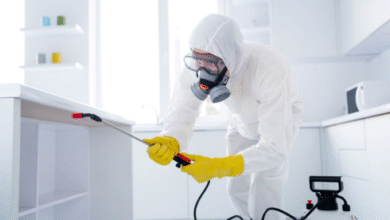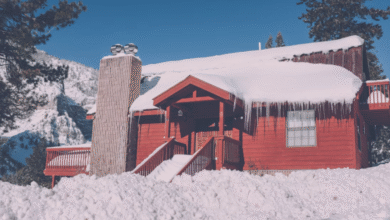What’s That Smell? Solving the Stinky Tap Water Problem in South Lyon

You turn on the faucet to fill a glass, expecting clean, refreshing water—but instead, your nose crinkles. That strange smell hits you. Is it sulfur? Musty basement? A little like rotten eggs mixed with old metal? Whatever it is, it definitely doesn’t belong in your water.
If you’re dealing with stinky tap water in South Lyon, MI, you’re not the only one. And no, you don’t have to live with it or keep pretending the smell isn’t real. Smelly water isn’t just gross—it’s a sign something’s going on with your water chemistry. Luckily, there are real solutions that work. Let’s dig in.
What’s Causing That Funky Water Smell?
Let’s get this out of the way: water is not supposed to smell.
When it does, it’s usually because something got into your water supply that shouldn’t be there—or something already there is reacting with your pipes or heater. Some of the most common culprits include:
- Hydrogen Sulfide (H₂S) – This is the most infamous smell-maker. It’s responsible for the classic “rotten egg” scent and is usually caused by sulfur bacteria in groundwater or water heaters.
- Iron and Manganese – These don’t usually smell much themselves, but when combined with bacteria or oxygen, they can create a musty or metallic odor.
- Chlorine – Sometimes over-chlorinated municipal water carries a strong bleachy scent.
- Algae and Organic Decay – If you’re on well water, especially from shallow sources, organic material might be part of the equation.
That’s why the first question to ask is this: Does it smell everywhere or just from certain faucets?
If it’s only from hot water taps, your water heater might be to blame. If it’s coming from both hot and cold? The source might be in your well or your main water supply.
South Lyon’s Water: Why the Smell Is More Common Here
South Lyon sits in a beautiful part of Michigan—but like many Midwest towns, it deals with complex groundwater conditions. For homes on city water, chlorine treatments and aging infrastructure may contribute to odors. But for the many homes still using private wells? Natural sulfur bacteria, organic runoff, and shifting water tables can all cause issues—especially during seasonal changes.
Translation? Even if your water smelled fine last year, this year might be different.
That’s why homeowners are increasingly searching for a bad water smell solution that actually works and doesn’t just mask the issue.
What Can You Do About It?
First, don’t panic. Most of the causes behind stinky water aren’t dangerous. They’re just annoying—and occasionally damaging to plumbing over time. Here’s how to fix it, depending on the source:
1. Hot Water Smell Only? Check Your Heater.
A common issue is the magnesium anode rod in your water heater. It reacts with naturally occurring sulfates in the water to produce hydrogen sulfide. Replacing the rod with an aluminum one, or installing a powered anode rod, often does the trick.
2. Well Water Woes? Time for Treatment.
If the odor’s in both hot and cold water, especially if you’re on a well, it’s time for a comprehensive smelly well water fix. The best long-term solutions include:
- Air Injection Systems – These oxidize hydrogen sulfide so it can be filtered out.
- Carbon Filters – Great for low levels of odor and general taste improvement.
- Chlorination + Filtration – For more serious bacterial issues, this two-step process kills sulfur bacteria and removes leftover chemicals.
- Ozone Systems – These are high-tech, low-maintenance, and extremely effective for stubborn smells.
3. City Water Issues? Get a Test.
Sometimes the smell is coming from reactions between municipal additives (like chlorine) and organic matter in your home’s plumbing. A certified water test can pinpoint the problem and suggest the right filtration system to handle it.
Why DIY Fixes Don’t Cut It
Sure, you can toss some bleach into the well or try a faucet filter from the hardware store—but these band-aids don’t last. And worse, they might not address the root problem, leading to corrosion, pipe damage, or lingering bacteria.
The most effective solutions are custom-designed for your specific water makeup, which is why a professional test is worth every penny. Once you know what you’re up against, fixing it becomes a whole lot easier.
Local Matters: South Lyon Has Unique Water Chemistry
Not all filters are created equal. What works in Florida or Arizona might fall flat in Michigan soil. That’s why working with a local water specialist who understands stinky tap water South Lyon MI, bad water smell solution, smelly well water fix isn’t just smart—it’s necessary.
Local pros will know what common minerals are affecting your area, how deep your well is likely pulling from, and what systems work best in this part of the state. That knowledge means less trial and error—and more getting back to water that doesn’t make you flinch.
Everyday Perks of Fixing the Smell
Aside from not holding your breath every time you brush your teeth, solving your water odor problem comes with some great bonuses:
- Cleaner, better-tasting drinking water
- No more embarrassing smells when guests are over
- Longer life for your water heater and plumbing
- Softer laundry and spot-free dishes
- Less need for bottled water or heavy-duty cleaners
And hey, water is something we use all day, every day. When it smells good, tastes clean, and doesn’t leave you wondering what’s in it, everything just feels… right.
Final Thoughts: You Deserve Better Water
Smelly tap water isn’t just a nuisance—it’s a sign that your home deserves better. Whether it’s your well, your pipes, or your heater playing games, there’s a fix for it. And in South Lyon, you don’t have to figure it out alone.
Start with a water test. Talk to someone local who gets what Michigan water can throw at you. And take that first step toward water you’re proud to pour, sip, and soak in.
Because fresh, clean water isn’t a luxury. It’s a basic comfort. And it’s one you can absolutely have—without the stink.




